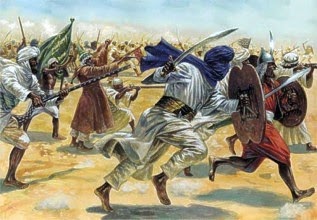Distant friends by F.S. AIJAZUD DIN
ANYONE who did not believe in Lady Luck or the goddess Lakshmi should have witnessed the Indian tea ceremony at Hyderabad House, New Delhi, on Jan 25. There was evidence enough and more that an invisible, indefinable force had lifted Barack Obama and Narendra Modi to such lof ty eminence.
Think about it. Barack Obama a downand-out first generation American who once slept roofless on a pavement in New York, whose friend was a drug-snorting Pakistani illegal alien, whose first fundraiser for a Senate seat was organised by his Pakistani friends in a Chicago restaurant (they raised $3,000).
Modi, initiated into politics while serving tea to RSS delegates, a pracharak of the Rashtriya Swayamsevak Sangh (RSS), a married brahmachari vegetarian, an introvert and poet.
Yet, that day, in the garden of what Edwin LutyensdesignedastheNizamof Hyderabad`s town house on Rajpath, Narendra Modi as the 15th prime minister of India served tea/coffee to Barack Obama, the 44th president of the United States.
It was hardly the occasion for them to remind each other of their antecedents. So when Barack Obama referred to Modi`s `Bollywood`-like reception by the Indian diaspora at Madison Square Gardens in September 2014, Modi had the ineffable grace not to mention that, less than 10 years earlier, just as he was on his way to address Indian expatriates at the very same venue, his US visa had been revoked peremptorily by the US government. It cited a forgotten piece of legislation, the International Religious Freedom Act passed by Congress in 1998.
And when both leaders announced `a breakthrough to end the logjam` over the US-India nuclear deal (hanging fire since 2005 because of an obstructive unforgotten Indian law that enabled its operators to sue US suppliers in case of accident), neither fouled the atmosphere by alluding to Union Carbide or its culpability for the Bhopal tragedy in December 1984, in which 3,787 Indians died and over half a million Bhopalis were injured.
Official visits like Obama`s are not sessions of the Truth & Reconciliation Commission.
They are designed to be less about grimy substance than about non-lethal atmospherics.
Much has been made by the Indian media of the obvious chemistry between Obama and Modi the bear-hug on arrival, the closely observed tête-a-têtes, the informal banter between the two. However spontaneous these gestures appeared before the cameras, they were the product of diplomacy aforethought.
This visit had a number of imperatives. The United States as a global superpower needed to reassert its interest in South Asia. By avoiding Pakistan, Obama wanted us to know that while US-Pakistan relations had yielded past uses, commerce with India promised future,greater benefits.
Modi, for his part, hoped that international economies would recognise that his India had turned its back irreversibly on Nehruvian socialism. Democracy and capitalism like Modi and Obama would stride forward together, hand-in-hand. The unspoken expectation on India`s part was the endorsement of itself as a self-appointed regional superpower, by a bully bigger than itself.
The attitude of leaders to each other can often make or mar such events. At Vienna in 1961, for example, John E Kennedy felt patronised by Khrushchev`s condescension towards him. Pandit Nehru never disguised even when they met his contempt for Gen Ayub Khan. And the personal animus between Indira Gandhi and Richard Nixon undoubtedly discoloured their policies during the East Pakistan/Bangladesh crisis in 1971.
`Politics,` as Khrushchev once observed, `is a merciless business.` Geopolitics is even less forgiving. During Modi`s last visit to the US, heand Obama `expressed concern about rising tensions over maritime territorial disputes ...
especially in the South China Sea`. Because of the very nomenclature of those turbulent waters, China was bound to react. It warned both countries not to interfere in its disputes.
Unabashed, in NewDelhi, Obama and Modi again reiterated the importance they attached to `safeguarding maritime security and ensuring freedom of navigation and over flight throughout the region, especially in the South China Sea`.
President Xi Jinping`s mature unrepentant response can be gleaned from a speech (termed `an Important Address`) he gave to the Central Conference on Work Relating to Foreign Affairs, in November 2014. He stressed China`s need to `promote neighbourhood diplomacy, turn China`s neighbourhood areas into a community of common destiny ..
and to actively advance the building of the Silk Road Economic Belt and the 21st-century Maritime Silk Road`.
If the United States thinl(s in centuries, China contemplates in millennia. Mao Zedong, sitting on Taishan mountain, declared famously once that `the East is Red`. He was not simply describing the crimson sunrise. He was warning, as Zhou Enlai did Henry Kissinger in July 1971, that the US was `10,000 miles away. China was much closer`.• The writer is an author and art historian.




Comments
Post a Comment